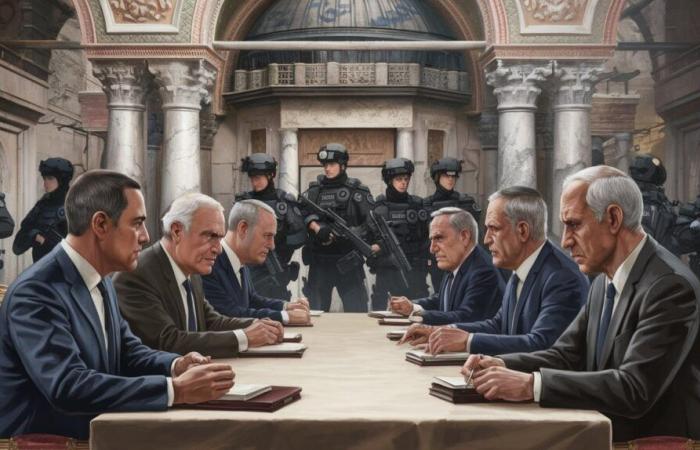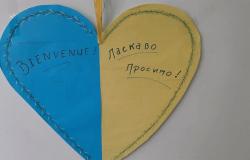
New diplomatic clash between France and Israel in Jerusalem during the visit of Minister JN Barrot. Armed Israeli police entered a French estate without permission, revealing ongoing friction despite…
This is a new episode in the sometimes stormy relations between France and Israel which took place this Thursday in Jerusalem. While French Foreign Minister Jean-Noël Barrot was on an official visit, an incident tarnished diplomatic exchanges. Armed Israeli police officers entered “without authorization”, according to the minister, on a religious site belonging to France.
French estates under tension in East Jerusalem
The incident occurred on the Eleona National Estate, located on the Mount of Olives in East Jerusalem. This Palestinian part of the city has been occupied and annexed by Israel since 1967, a status that the international community does not recognize. Adjacent to the site is also a Carmelite convent under French diplomatic protection.
Built on the grotto known as “du Pater”, where according to tradition Christ taught the prayer of the Our Father to his disciples, the Eléona is one of the four French national estates in Jerusalem. It is next to the Tomb of the Kings, the Sainte-Anne basilica and the old crusader commandery of Abu Gosh. Places imbued with history and symbols, regularly at the heart of friction.
An “attack on integrity” denounced by Paris
Describing this intrusion as an “unacceptable situation”, Minister Barrot castigated “an attack on the integrity of an area placed under the responsibility of France”. A violation of sovereignty which could, according to him, “weaken the links” that France was nevertheless trying to “cultivate with Israel”. The rector of the Sainte-Anne basilica recalled the sacred and protected nature of these places where “one does not enter with weapons”.
This attack is likely to weaken the ties that I came to cultivate with Israel, at a time when we all need to move the region forward on the path to peace.
Jean-Noël Barrot, French Minister of Foreign Affairs
Faced with what he considers to be a provocation, the head of French diplomacy decided to cut short his visit, refusing to enter this place of pilgrimage. The Israeli ambassador in Paris will be summoned “in the coming days” to explain himself, announced the Quai d'Orsay.
A new clash after the departure of the minister
The matter could have ended there. But a few moments after Jean-Noël Barrot's departure, another incident broke out. This time, it was two French gendarmes in civilian clothes who were attacked by the Israeli police. One of them was forcefully thrown to the ground before being taken away. “Don’t touch me!”, he shouted over and over. The two men were finally released, the police arguing that they were not in uniform and had not presented their professional cards.
A justification that struggles to convince on the French side. “They know that we work at the French consulate general,” reacted one of the two agents. For the Israeli police, the two individuals had “refused entry to the site to Israeli agents responsible for the minister's security”. Opposing versions, crystallizing the differences in these disputed spaces.
A long list of diplomatic skirmishes
This is not the first time that the French domains of Jerusalem have been the scene of tensions. In January 2022, Emmanuel Macron's visit had already been punctuated by a stampede in front of the Sainte-Anne basilica. “I don't like what you did in front of me,” the French president said to a slightly overzealous Israeli police officer.
In 1996, a similar scene pitted Jacques Chirac against Israeli soldiers who closely surrounded him. “Do you want me to get back on board my plane?” the head of state said, demanding that the soldiers leave the area. Repeated incidents which illustrate the extreme sensitivity surrounding the status of Jerusalem and the contradictory claims made there.
A fragile status quo against a backdrop of tensions
If France and Israel maintain close and generally cordial relations, the question of holy places continues to rekindle friction. Paris, which claims a form of protection over certain Christian sites, refuses to see its sovereignty challenged. Israel, for its part, intends to assert its control over a city which it has made its “unified and indivisible” capital, despite the non-recognition of the international community.
In this context, the status quo remains fragile. Each incident, even minor, takes on a symbolic and political significance. The desire to preserve peaceful diplomatic ties regularly comes up against demonstrations of force on the ground. A precarious balance that the latest altercation has reminded us of, at the risk of “weakening” a little more a relationship in search of appeasement.





